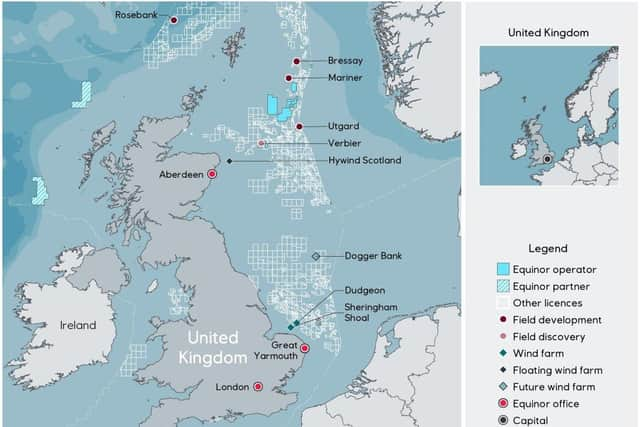New 70,000 barrels a day oil field will have lowest possible carbon footprint say developers
Industry body Offshore Energies UK (OEUK) said it would benefit UK energy security and the Scottish economy, but environmental campaigners claim it would be a “total betrayal” of climate goals if the UK Government approves the project.
Uplift, which campaigns for a fossil fuel-free UK, said the Rosebank field would be twice the size of the controversial Cambo development.
Advertisement
Hide AdAdvertisement
Hide AdIt also claimed investing in field would reduce the amount Equinor has to pay under the Government’s windfall tax on energy companies.
Equinor said a final investment decision on Rosebank could happen in 2023, with the next steps for the project including obtaining the necessary consents.
But Uplift director Tessa Khan said: “Approving Rosebank would be a total betrayal of both the Government’s climate goals and the British public who face a severe recession while oil and gas companies make outrageous profits.”
Equinor, however, said research shows that over its lifetime Rosebank could generate £24.1 billion of gross value add (GVA).
It added that if production starts in 2026, from then to 2030 the field could account for 8% of the UK’s total oil production, while natural gas from the site could be the equivalent of the daily average use of a city the size of Aberdeen.


Rosebank at its peak could produce 69,000 barrels of oil a day, OEUK stated, along with about 44 million cubic feet of gas per day in its first 10 years.
Equinor senior vice-president Arne Gurtner stressed the firm is “committed to net-zero by 2050 and is ready to invest to bring energy security while also transitioning to lower-carbon energy sources over the coming years”.
He added: “Here in the UK we are building the world’s largest wind farm, Dogger Bank, and are planning some of the largest hydrogen and CCS projects in the world.
Advertisement
Hide AdAdvertisement
Hide Ad“That said, for the next few decades oil and gas will continue to play a vital role alongside these low-carbon systems.
“We aim to develop and operate projects such as Rosebank with the lowest possible carbon footprint while bringing the maximum value to society in the shape of UK investment, local jobs and energy security.”
Comments
Want to join the conversation? Please or to comment on this article.